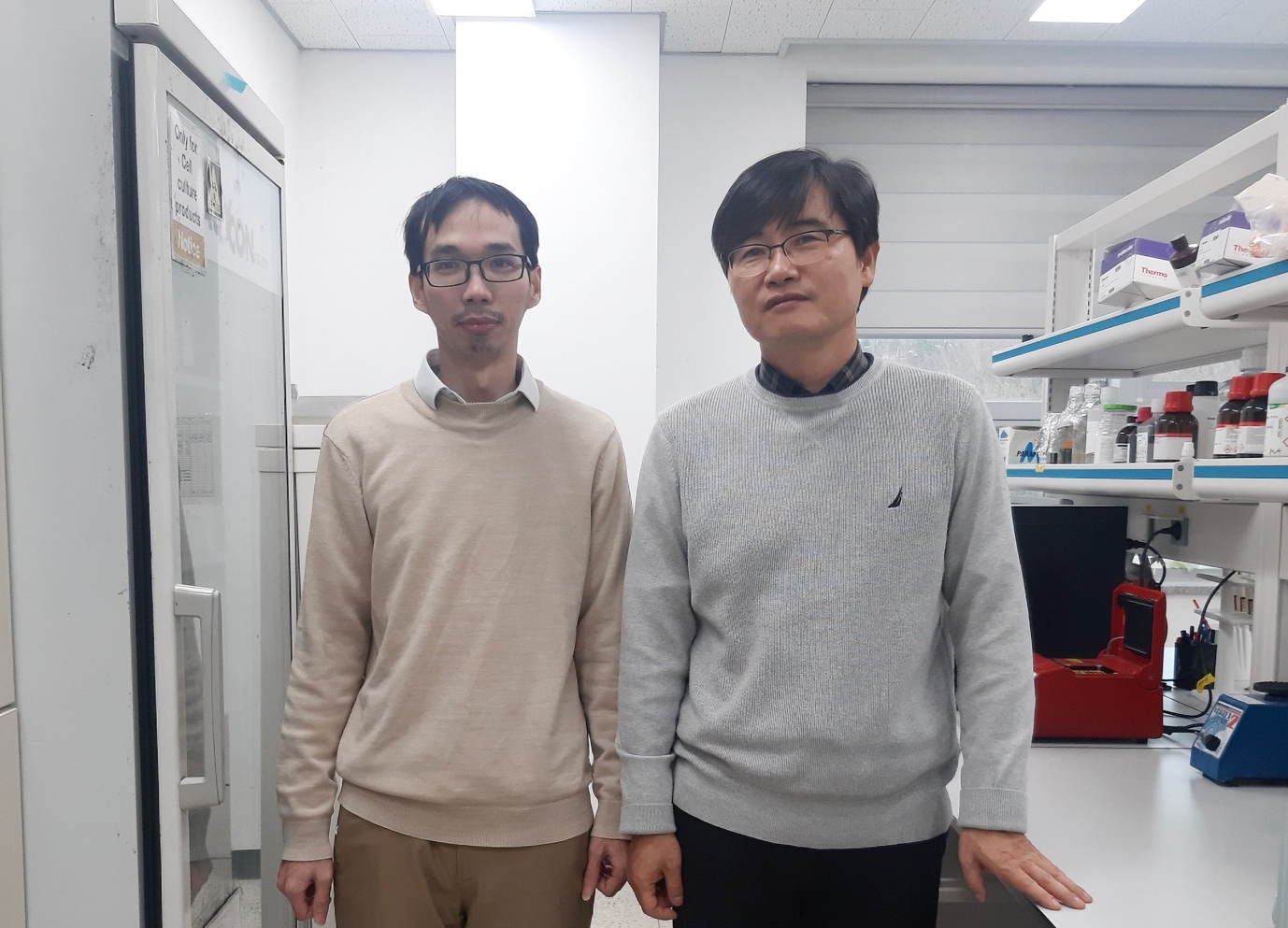Professor PARK Pil-hoon of YU Department of Pharmacy published a paper in a world-renowned academic journal N
No.9689035- Writer PR team
- Date : 2024.02.27 11:22
- Publication Date : 2024.02.08
- Views : 6583
Published in “Acta Pharmaceutica Sinica B,” an international academic journal in the field of pharmacology
Analysis of the uses and effects of mesenchymal stem cells and adipotectin
Research plan to identify the causes of obesity-induced diseases and treat drugs
[February 08, 2024]

<From the left, Mr. Duc-Vinh Pham and Professor ParK Pil-hoon>
Park Pil-hoon (53), a professor of YU Department of Pharmacy, published a paper in the January issue of Acta Pharmaceutica Sinica B (IF 14.5, top 4% in pharmacology/pharmaceutics), an international academic journal in the field of pharmacology.
The paper was written by Duc-Vinh Pham (graduated from the doctoral program at YU College of Pharmacy), Thi-Kem Nguyen (Ph.D. candidate), and Professor PARK and has the content that “Adiponectin restores the obesity-induced impaired immunomodulatry function of mesenchymal stromal cells via glycolytic reprogramming” and that adiponectin, a hormone secreted by adipose tissuees, is used for mesenchymal stem cells.
Mesenchymal stem cells can be efficiently used for degenerative neurological diseases such as Alzheimer's and Parkinson's diseases and joint diseases, and adipotectin is responsible for metabolic functions beneficial to our body, such as strengthening insulin signaling and lipid metabolism.In this study, the research team found that mesenchymal stem cells isolated from adipose tissue of obese mice, adipotectin restores the cell survival rate and immune regulation function of stem cells and that when stem cells primed with adiponectin are transplanted into experimental animals suffering from colitis, disease treatment efficiency is significantly restored.Through this, they found that adipotectin restores the decline in survival rate and physiological function of mesenchymal stem cells caused by obesity and that the decrease in blood concentration of adipotectin during obesity is associated with the decline in mesenchymal stem cell function.
Professor PARK Pil-hoon said, “This study is the first to show in stem cell culture and colitis disease model that adiponectin significantly improves stem cell treatment efficacy by inducing glycolytic reprogramming. We expect to improve the disease treatment efficiency of stem cells through direct use or through the development of drugs that induce the activation of the adipotectin signaling system.”
Professor PARK conducted a research on the impact of adipokine, a group of hormones secreted from adipose tissue, on the onset and progression of various diseases caused by obesity and published it in a top journal in the related field. He plans to focus on research to identify the causes of obesity-induced diseases and discover therapeutic drugs.